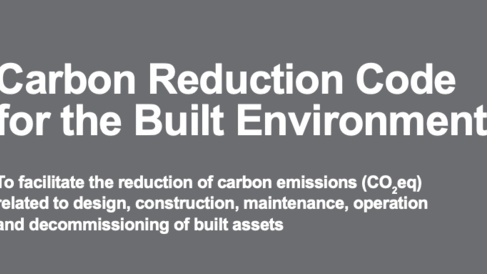
Ahead of COP27, CSIC is delighted to announce that Willmott Dixon and Kier have met the criteria to achieve CHAMPION level of the Carbon Reduction Code for the Built Environment.
The Carbon Reduction Code for the Built Environment, which is hosted by CSIC and is part of the Construction Leadership Council’s Construct Zero initiative, is structured around commitments that stimulate action in different aspects of carbon reduction. All organisations which comply to the Code must set out and publish plans to meet Net Zero by 2045, including annual targets, recognising that the majority of cuts need to be made by 2030, and publish progress against it annually. This is the minimum commitment for achieving PLEDGER status, the first of the three levels of compliance to the Code. To comply with the criteria required to achieve SIGNATORY or CHAMPION level, an organisation must sign up to additional commitments designed for supply chain members or clients.
We are delighted to have achieved the CHAMPION criteria of the Carbon Reduction Code for the Built Environment. Through our 2020-2030 ‘Now or Never’ sustainability strategy, we have set a clear route to being a zero-carbon business by 2030, and ensuring all our new buildings and major refurbishments achieve net zero operational carbon. The criteria for the Carbon Reduction Code is helping to accelerate our journey. Michael Cross, Head of Partnerships and Innovation at Willmott Dixon
Other adopters to the Code include Skanska UK, HS2, Morgan Sindall Construction, SCAPE and SCAPE Scotland (CHAMPIONS), McLaughlin & Harvey (SIGNATORY), and the National Association of Construction Frameworks (NACF), City Building Engineering Services (CBES), Interclass, SCF Construct and SPACE.
The Carbon Code was drafted by the CSIC Achieving Net Zero Cross-Industry Working Group in 2020 and first issued in 2021. It is a commitment scheme designed to facilitate action and collaboration in the built environment towards reducing carbon emissions (CO2eq) related to design, construction, maintenance, operation and decommissioning of built assets. Creating a community of built environment organisations to support each other will help everyone to reach the destination of net zero.
Michael Cross, Head of Partnerships and Innovation at Willmott Dixon said: “We are delighted to have achieved the CHAMPION criteria of the Carbon Reduction Code for the Built Environment. Through our 2020-2030 ‘Now or Never’ sustainability strategy, we have set a clear route to being a zero-carbon business by 2030, and ensuring all our new buildings and major refurbishments achieve net zero operational carbon. The criteria for the Carbon Reduction Code is helping to accelerate our journey.”
• Additional guidance can be found on the Carbon Code pages of the CSIC website or contact carboncode-enquiries@eng.cam.ac.uk with any questions.
• In order to provide support and guidance for organisations navigating their way to demonstrating compliance with the Carbon Reduction Code, the Supply Chain Sustainability School, in collaboration with CSIC, has mapped some essential materials and resources related to the Code commitments. The Supply Chain Sustainability School is an award-winning industry wide collaboration, led by partners and members, with a shared vision to be a world class collaboration to enable a sustainable built environment. Explore the map of materials here: https://lnkd.in/eGNn6a5p
